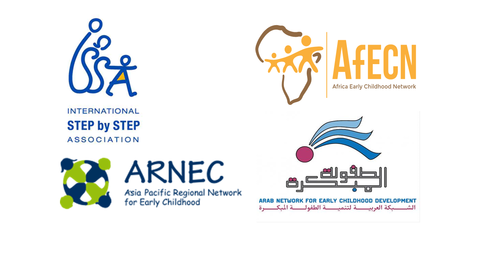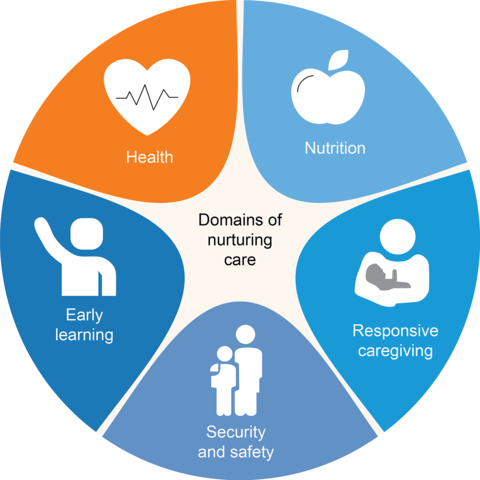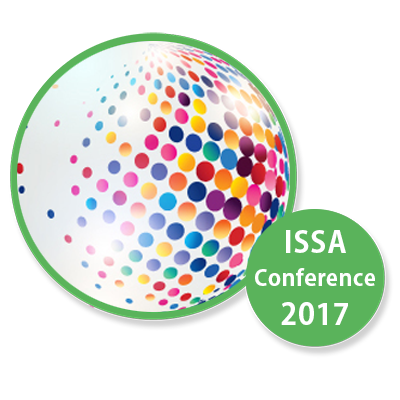 ANECD Update #5
ANECD Update #5 
ANECD News
ANECD Annual Meeting, November 2017
The Arab Network for Early Childhood Development held its annual meeting in Amman, November 13-15, 2017. In addition to reviewing the strategic orientations of the network, the meeting worked on advancing the programmatic activities and consolidating the membership and governance. Moreover, the network activities during the past year were presented, and the participants were involved in planning for the coming year. Major themes include local, regional, and global networking, training on the Science of ECD at the national level, working with refugees, research, and new horizons. A detailed report will be included in the coming ANECD Newsletter.
ANECD Members
National Council for Family Affairs in Jordan
With its logo, “Jordanian Identity, Global Vision”, the National Council for Family Affairs (NCFA) is an umbrella organization that supports, coordinates, and facilitates the work of its partners and relevant institutions involved and influential in the field of family affairs including children. NCFA mission is to contribute to ensuring a better quality of life for Jordanian families and children through a national vision that supports the country development policies and enables the family to attain its optimal aspirations. Among NCFA multiple activities in Early Childhood Development, there is a long-term project: “Development of services provided to children from birth to four years”. The project includes human resources training, activities, and development of manuals and activity sheets, in addition to building nurseries.
For more information, you can visit NCFA site: http://ncfa.org.jo:85/NCFA/en
Partner News

Meeting of Regional ECD Networks, July 2017
Various Regional Early Childhood Development Networks held a meeting at the office of “Open Society Foundation” in London in July 2017. The International Step by Step Association, Africa ECD Network, Asia-Pacific Regional Network for Early Childhood, and the Arab Network for Early Childhood Development were present.
The meeting objectives were the following:
The discussions focused on the following issues:
For more on OSF ECD program, please visit:
https://www.opensocietyfoundations.org/about/programs/early-childhood-program

WHO Meeting: Operationalizing Nurturing Care, July-August 2017
Due to the increasing response of the global community to the convergence between scientific evidence and political commitment to promote, protect, and support Early Childhood Development, the World Health Organization (WHO) organized a technical meeting on “Operationalizing Nurturing Care”. The meeting was held in Geneva between July 31 and August 2, 2017. The aim of the meeting was to review scientific and programmatic evidence of effective approaches to reach caregivers and children with a core package of interventions that support nurturing care. It was a first step towards the development of implementation guidance for policy makers and program managers on how to operationalize nurturing care and support optimal development of children in the critical early years of life.
http://www.who.int/maternal_child_adolescent/child/nurturing-care-framework/en/
High-Level Meeting: Investing in Early Years, September 2017
A high-level meeting, “Investing in the early years: a roadmap for sustainable futures”, was held in New York on September 21, 2017. The meeting was to discuss how investing early, even before birth, in young children’s development is one of the smartest interventions governments can make to address inequality, break the cycle of poverty, and improve the outcomes later in life. The event was hosted by Global Partnership to End Violence Against Children, Every Woman Every Child, the Global Partnership for Education, Sanitation and Water for All, the Scaling-Up Nutrition Movement, Early Childhood Development Action Network, UNICEF, and the World Health Organization. For more, please check:
https://www.unicef.org/media/media_100860.html

ISSA Conference, October 2017
The International Step by Step Association (ISSA) organized its Annual Conference “Local Responses, Global Advances: Towards Competent Early Childhood Systems”, in October 2017 in Belgium. More than 450 participants from 60 countries around the world attended the conference that united the knowledge and practice of researchers, practitioners, policy makers, donors, and NGOs to explore themes through discussions and interactive sessions, while participants shared their insights and solutions.

Mosanada (Support) in Bahrain
Mosanada is a non-profit child and family consultation center that provides a range of therapy services to meet the needs of children, adolescents, parents, and care givers in Bahrain. The aim of the center is to extend a helping hand to children who experience emotional and behavioral problems and other developmental issues. Services include Play Therapy, Counseling, Group Therapy, and Parenting Consultation, in addition to providing training programs.
For more information, you can visit the site: http://www.mosanadabh.org/en
Other News
Ending Polio in Conflict Zones
The Global Polio Eradication Initiative (GPEI) published on its site that in recent years, the global drive to eradicate polio has seen the virus cornered in fewer places than ever before. Yet polio’s final strongholds are some of the most complicated places in the world to deliver vaccination campaigns due to insecurity, conflict, migrations, terrain, weather, weak health systems, and other challenges.
In 2013, polio outbreaks in Central Africa, the Horn of Africa and the Middle East paralyzed hundreds of children. The Global Polio Eradication Initiative (GPEI) developed strategies to deliver vaccines and stop the virus, even when access seemed impossible. All three of these outbreaks were put to an end just a year later, by not letting the complexity of the situation undermine the quality of vaccination campaigns.
The valuable lessons learned by the GPEI in tackling these outbreaks are now being used to end polio in the final polio endemic countries, Afghanistan, Nigeria and Pakistan, as well as to stop a newly detected circulating vaccine-derived polio outbreak in Syria.
For more information: http://polioeradication.org/news-post/ending-polio-in-conflict-zones/
Other Resources and Publications

GPEI Polio News
The Global Polio Eradication Initiative published its newsletter, “Polio News”, and it marked the issue by honoring unsung heroes who are working to end the disease on World Polio Day, October 24. The issue contains articles about Rotary honoring those heroes, dense urban environments, and a mobile circus bringing Afghanistan close to polio eradication. The newsletter contains also links to relevant news such as the Yemen vaccination campaign that took place at the end of October 2017.
For more information, please visit the Initiative site: http://polioeradication.org/
UNICEF Early Moments Matter for Every Child
Given the importance of the first years of life, UNICEF launched an online resource, Early Moments Matter for Every Child. The resource includes a report, references, tips, videos, tweets to share, and recommendations for governments and partners. The resource is addressed to parents and caregivers on one hand, and to policy makers and researchers on the other.
You can find the resource on https://www.unicef.org/earlymoments/
What Education Do We Want?
Rosa Luxemburg Stiftung Regional Office Palestine published a booklet that summarizes the outcome of a discussion process on “Emancipatory Education in Palestine, What Education Do We Want”, edited by Dr. Ghassan Abdullah in 2016. The process included a series of workshops in 2016, which brought together organizations and individuals working in different forms of emancipatory education. After some discussion and reviewing the literature, participants found out that Palestinians had addressed this concept before Paulo Freire and had come up with similar or even more comprehensive ideas. An example is Khalil Sakakini who lived half a century before Paulo Freire. Participants discussed Palestinian experiences with alternative education and free thought in schools, universities, political parties, labor unions, and even prisons. Participants contributed ideas that were “outside the box” and proposed future initiatives and projects that could be used to localize and disseminate the concept of emancipatory education. You can find the booklet on:
http://www.rosaluxemburg.ps/wp-content/uploads/2017/03/What-Education-Do-We-Want_-English-LOW.pdf
Reminder: Coming Conferences
Reminder: LPHA, 2018
The Institute of Community and Public Health at Birzeit University, in collaboration with the Faculty of Health Sciences at the American University of Beirut, is pleased to invite submissions of abstracts for presentation at the upcoming Lancet Palestinian Health Alliance 2018 Ninth Annual Conference “Health of Palestinians”. The conference will be held on March 23-24, 2018 at the American University of Beirut, Lebanon. A broad range of topics related to health and determinants of health of Palestinians living inside and outside the occupied Palestinian territory are welcome. Studies may focus on any issue relevant to Palestinian health including diseases, nutrition, water and sanitation, political and social determinants of health, human rights, mental health, refugee and internally displaced people, child health and protection, disability, access to health services, professional education, and training and development, among other topics.
For more information, please contact this email address: lphacoordination@gmail.com
Reminder: IDPA Congress, December 2017
The International Developmental Pediatrics Association is holding its second Congress in Nehru Center, in Mumbai, India, December 7-10, 2017. Participants are workers in all disciplines supporting children with developmental disabilities and their families, including:
For more queries, please contact:
Email: idpacongress2017@ftcevents.com or visit the site: http://www.idpacongress.org/
